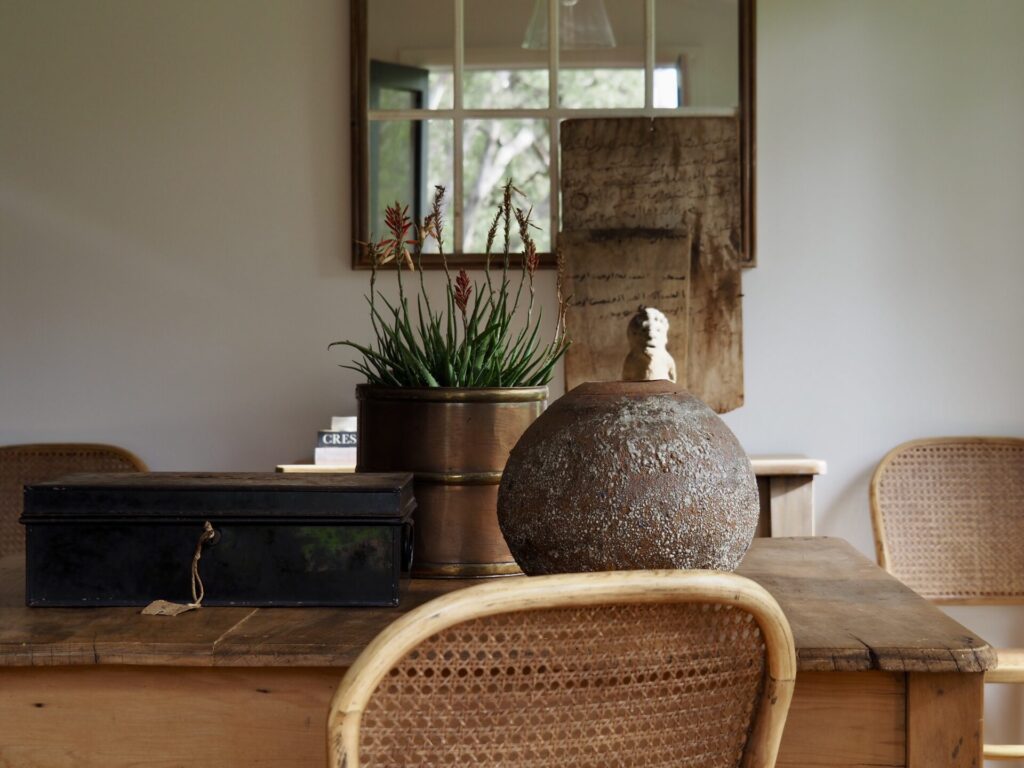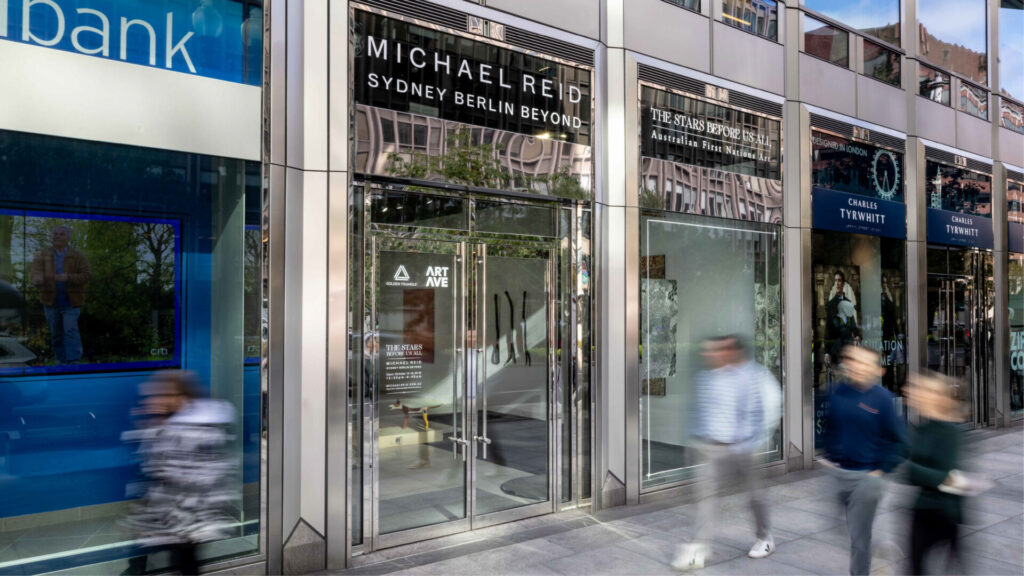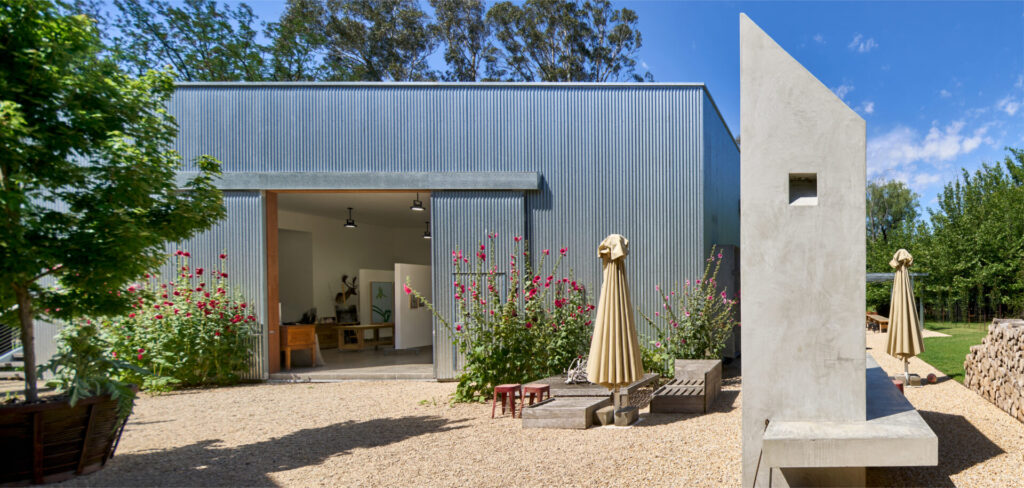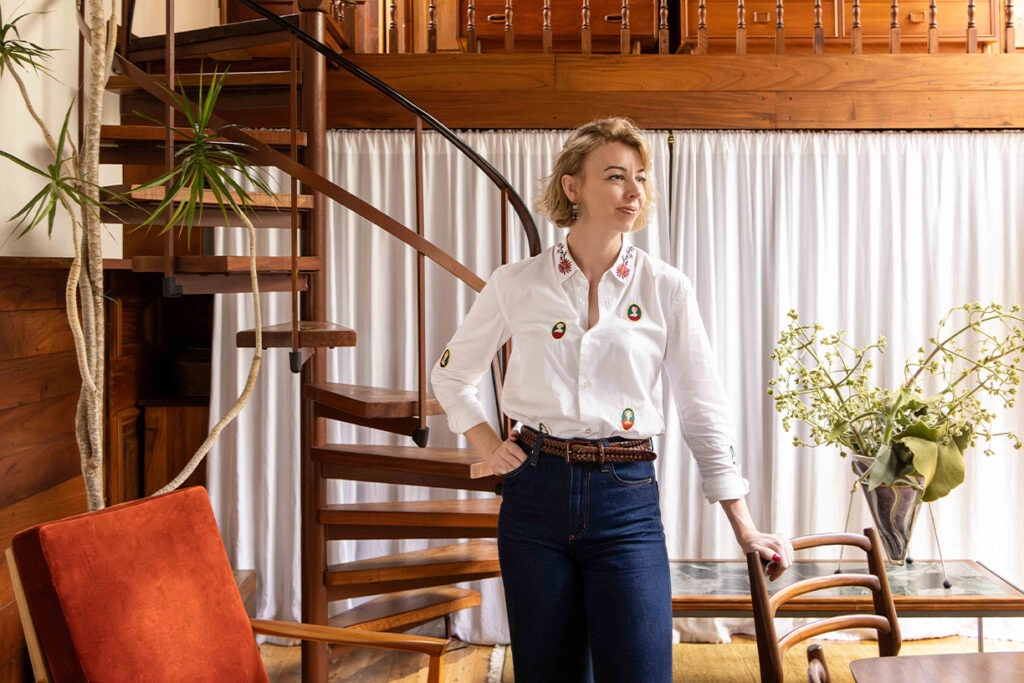Life on the land: The Whites
We leave Murrurundi this month and head to the Central Tablelands of NSW to visit Jack and Susannah White at Havilah North where they run Angus cattle.
The paddocks at Havilah North are full of feed and down the road, sheltering under a majestic apple gum, you can glimpse a group of Angus. Sleek and fat, the glossy black cows begin to move out into the pasture, while the bull ambles closely behind them. He moves carefully through the sea of grass, towering over any other animal in his path.
This magnificent coal- black mountain is called Joker Q57 and the two-year-old homebred bull represents everything that the White family have strived for on this property just east of Mudgee since 1881.
Today, Jack White and his brother Harry are the sixth generation to breed cattle on this land — and the seventh have recently made an appearance. Jack’s son Sid was born in June, 2020, while Harry’s son Ned arrived at 3am on the morning of the pair’s annual bull sale in August. It’s an important event at the heart of the Coffin Creek Angus operation which was started in 1991 by their father Nigel White.
This year the Whites sold 48 bulls and again broke their sales records with an average of $17,292 per head and a new stud record top price of $30,000, up $6000 from last year. Here, we speak to Jack and Susannah White for an insight into this progressive young couple’s life on the land.
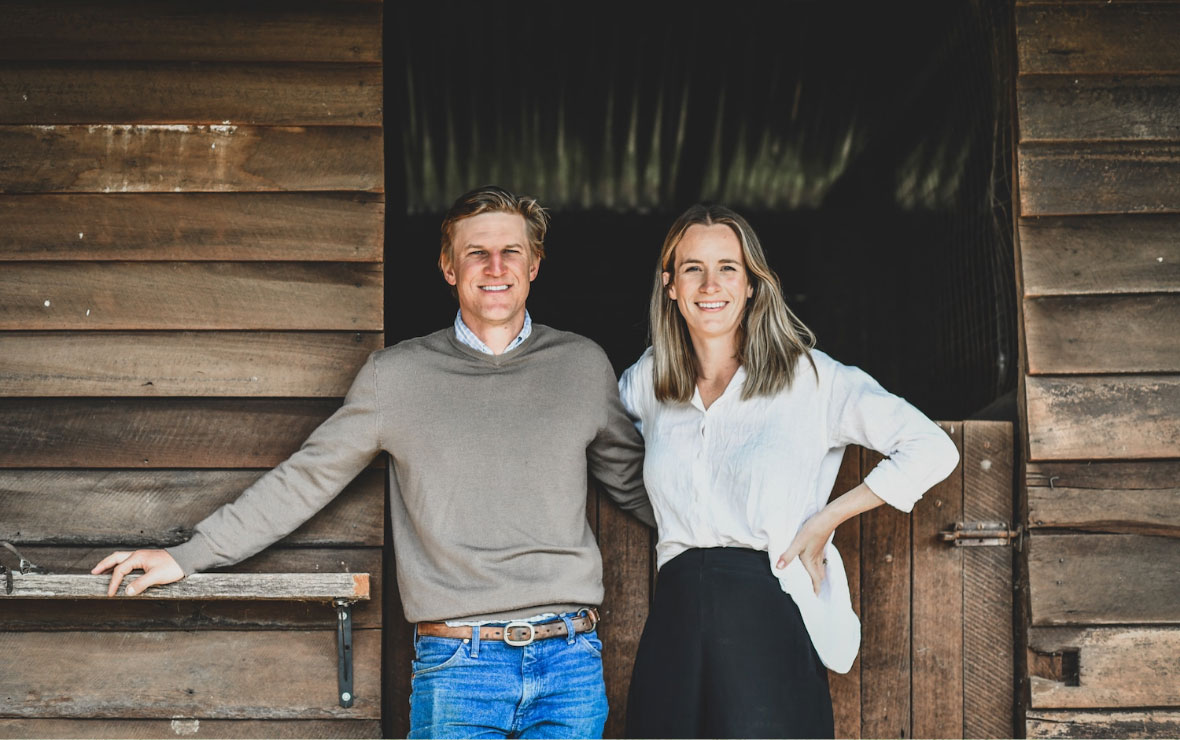
The homestead pictured is the Havilah Homestead. It has been occupied by the White family since 1881, and is lived in today by Hunter and Sue-Ann White.
The property Havilah North, where we live, was separated from Havilah in the 70s as part of family succession. Interestingly re Belltrees, the architect Horbury Hunt designed both an extension to the Havilah Homestead in 1890, and the Havilah wool shed, as well as several buildings at Belltrees, including the Belltrees wool shed.
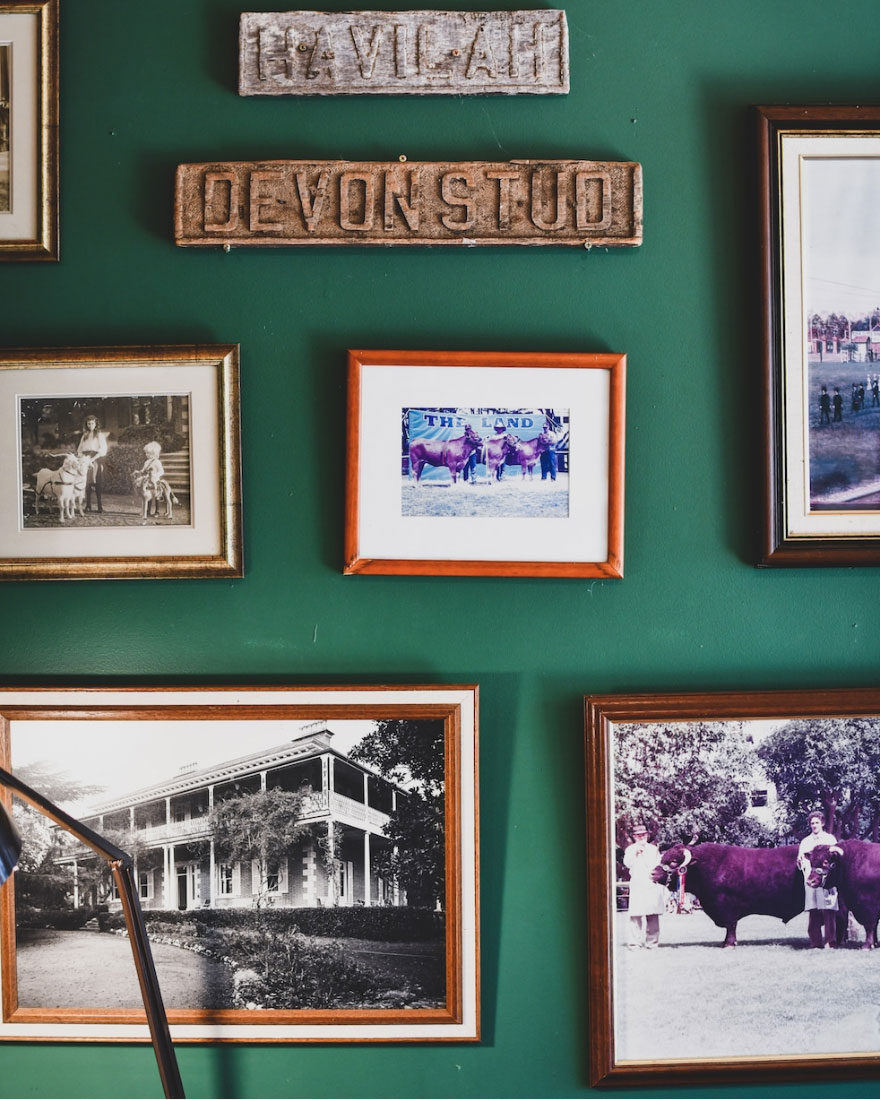
An avid racing fan, Jack and Harry’s father Nigel rode as an amateur jockey for a while when he was younger.
The bottom photos are of him winning in his father’s racing colours on a horse called Ly Low at the local Bligh Picnic Races in 1977.
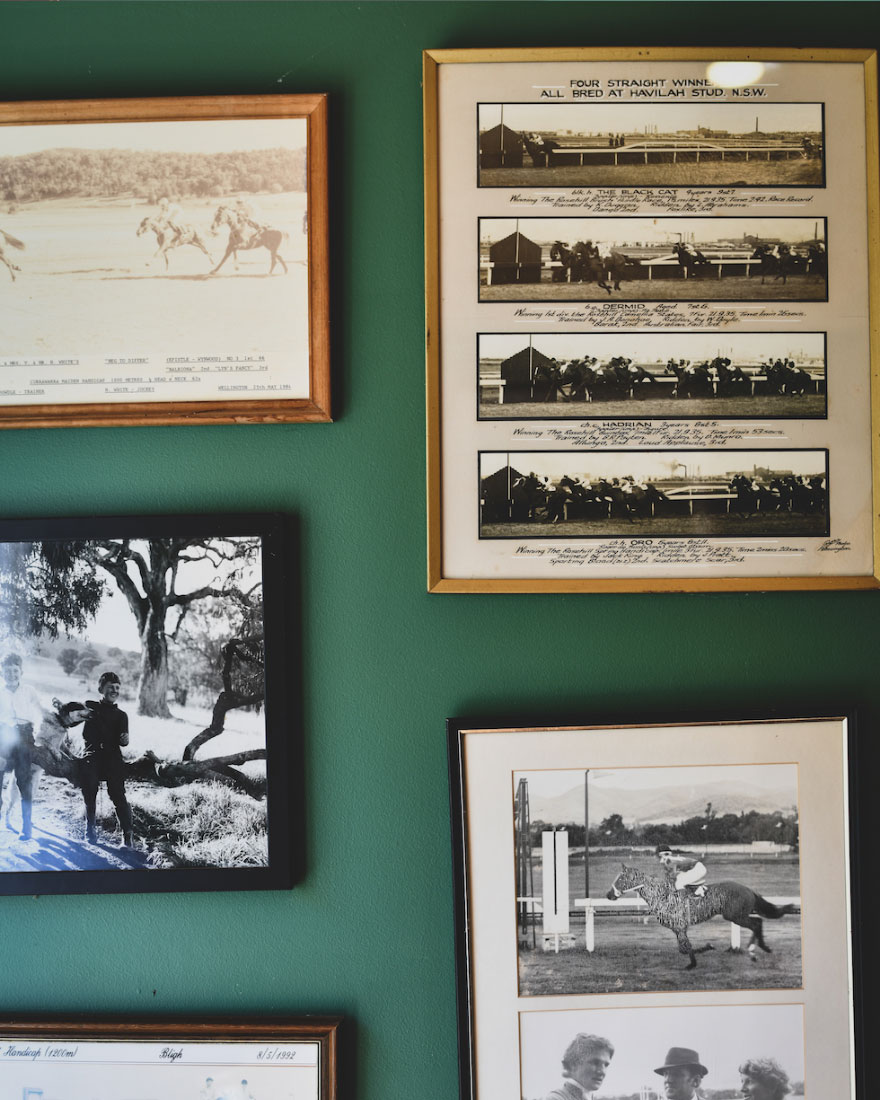
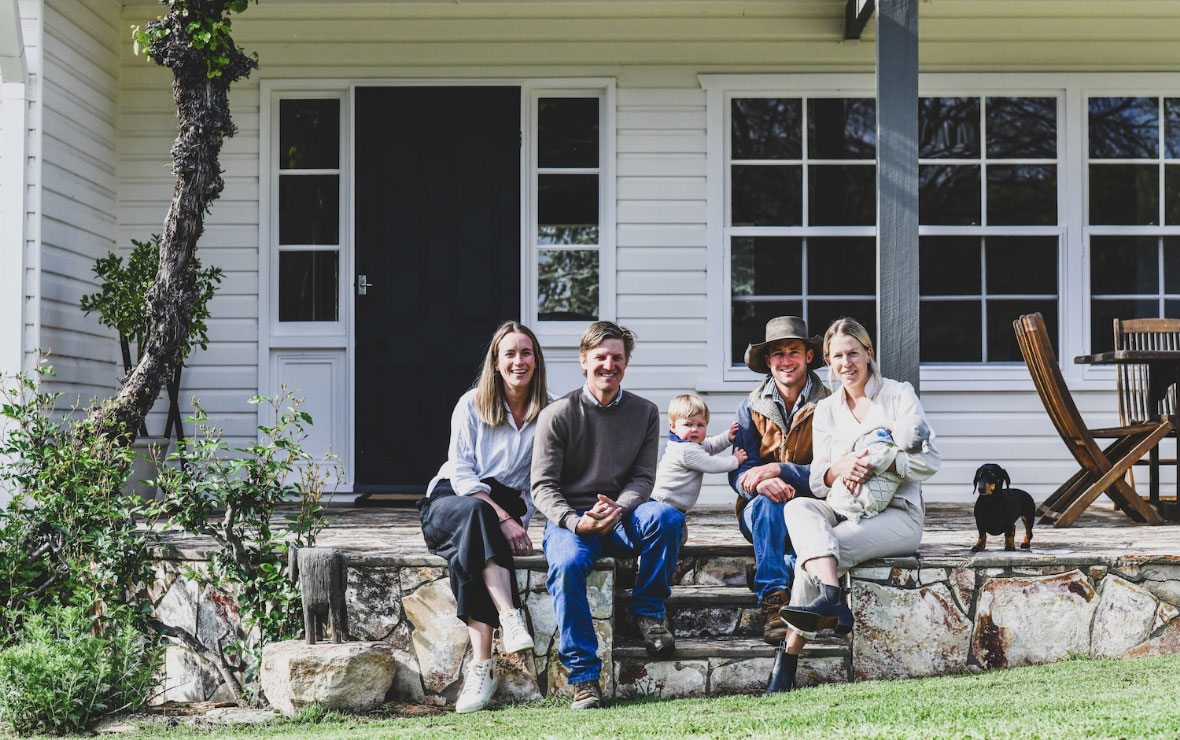
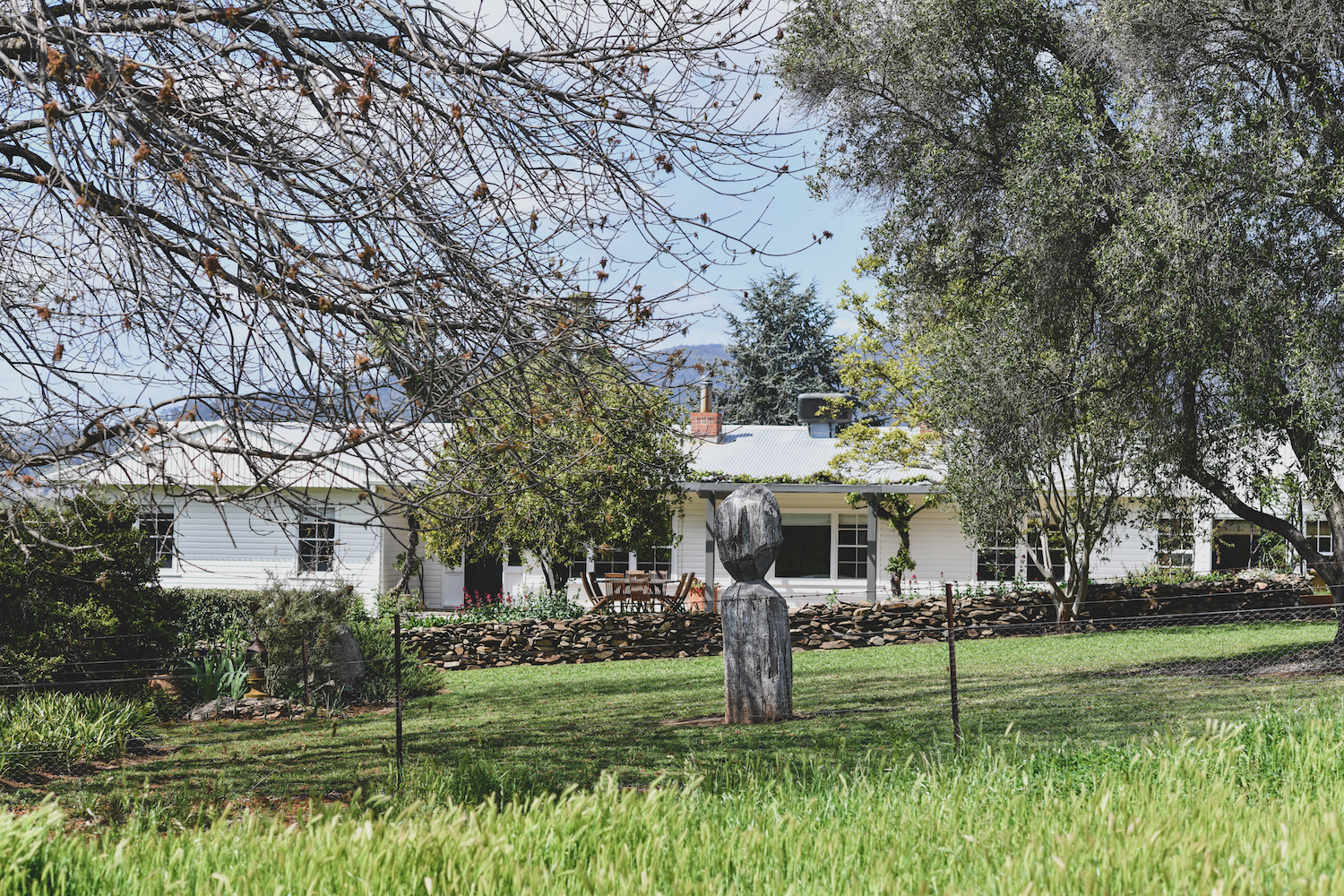
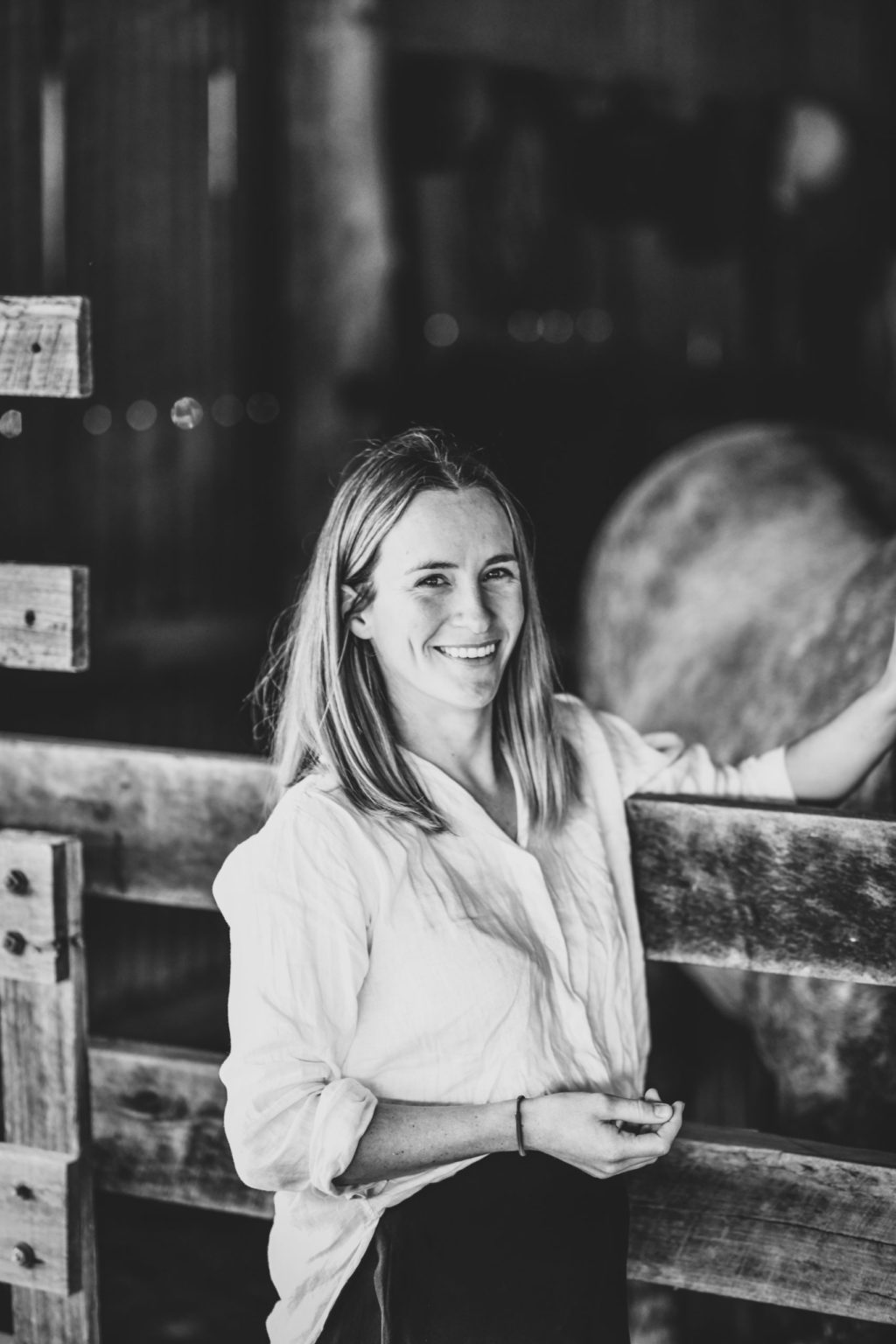
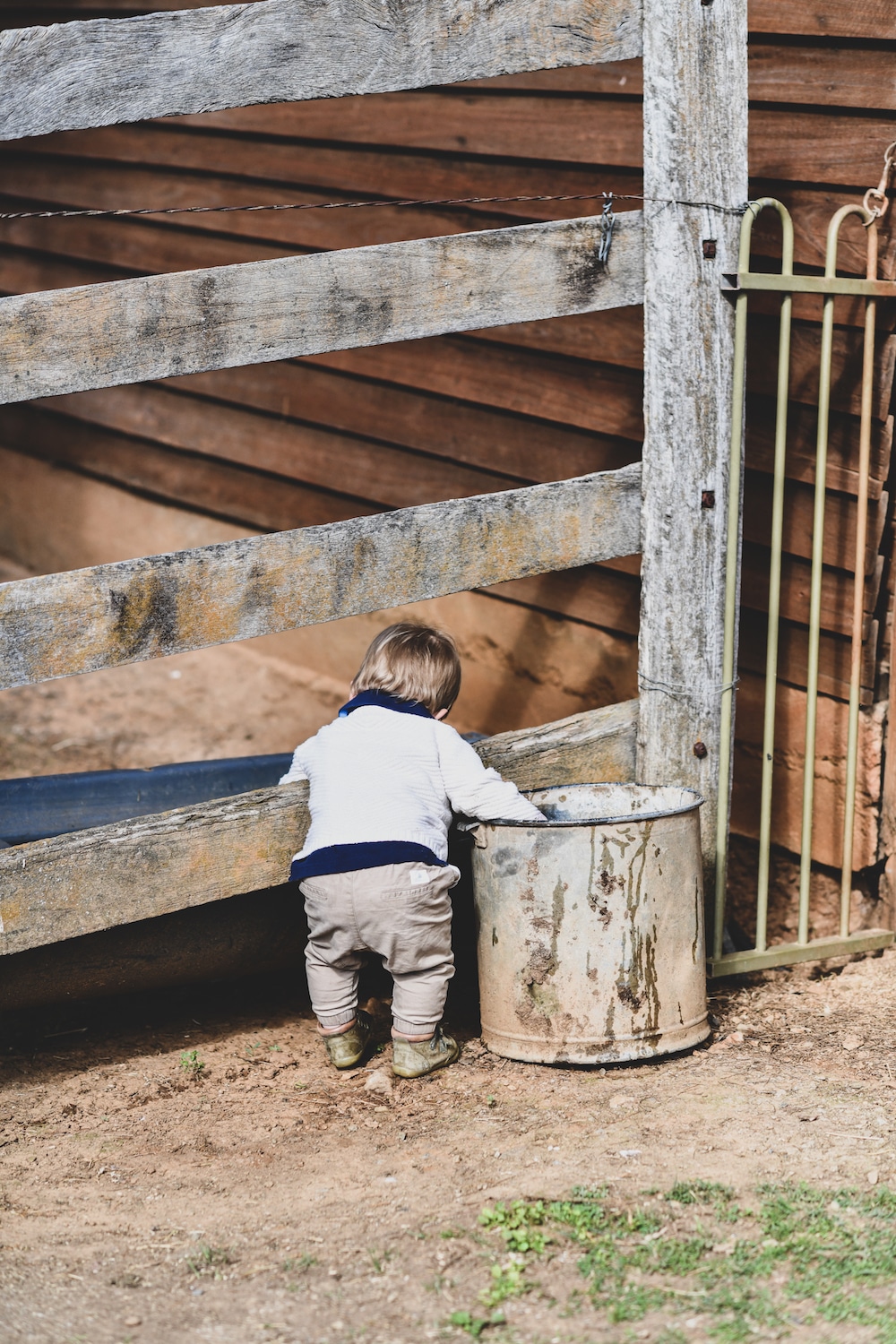
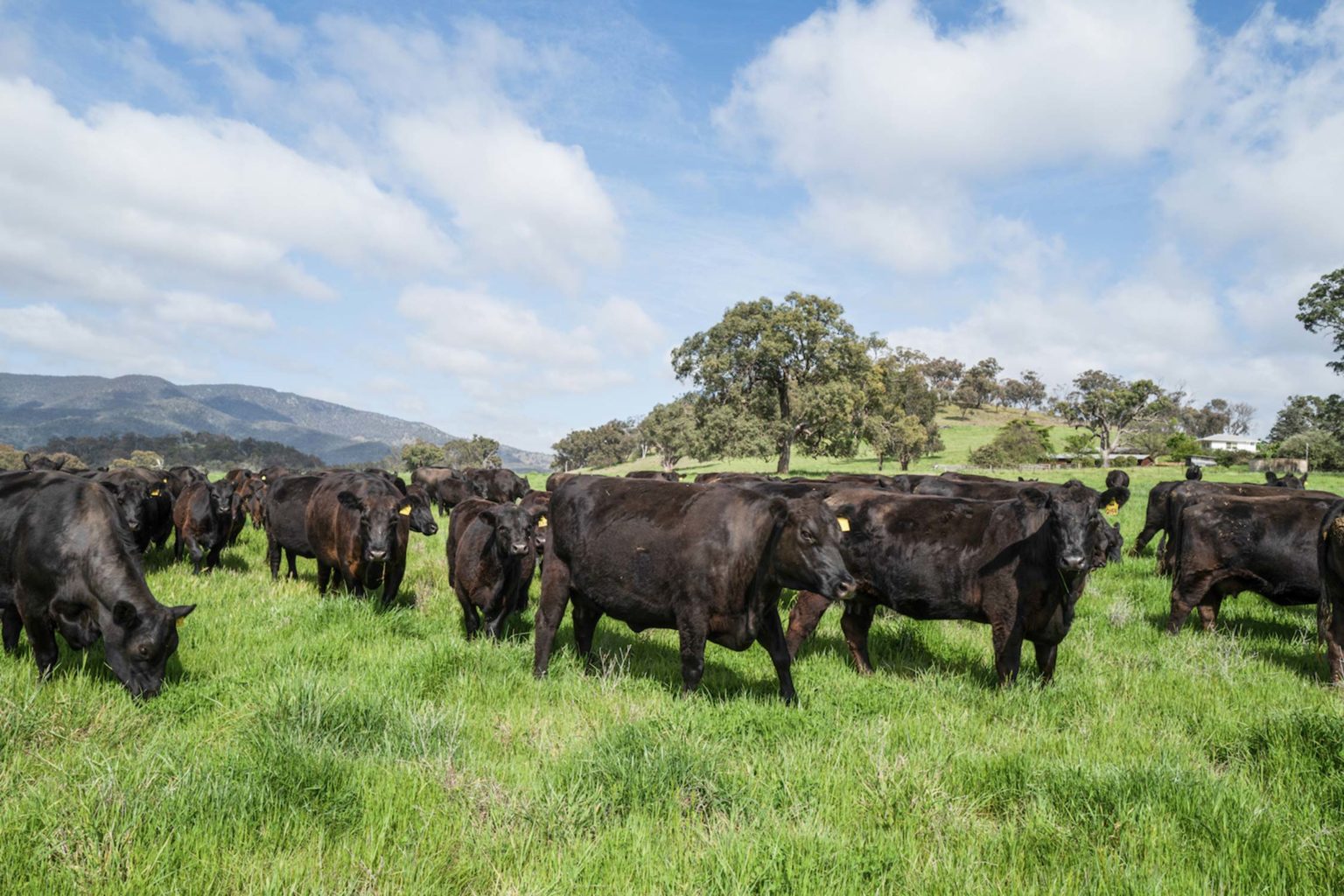
Jack White
The 32-year-old took over formal ownership of the family property with his brother Harry in 2019.
“From an early age my brother and I inherited a love for livestock, particularly cattle,” he explains. Today the pair run around 800 cattle over Havilah North’s 2000 hectares plus some leased country.
What was it like growing up on the property?
We were extremely fortunate to grow up on the farm. Always outdoors, we would spend hours mustering on horses or motorbikes and helping dad in the cattle yards etc. We had plenty of animals; dogs, cats, chooks, horses, sheep.
What do you see as the key differences in the way you run the business and how the generation before you did?
Our land management style is probably different now to that of say our grandfather’s era. There has been a major shift away from set stocking animals in the same paddock, but rather rotational grazing and resting pastures, a practise which Dad adopted and we have continued. We are extremely fortunate to have access to amazing technology now that improves the efficiency of what we do, with all our farm maps and records on our iPhones, easy connection to a strong network of professionals such as business advisors, agents and agronomists, and ease of communication between everyone else at work. We embrace the science of artificial insemination, embryo transfer and DNA genomic testing to enhance our genetic gains in our seedstock herd.
What challenges have you faced? And the things you most enjoy about you do?
It is challenging and rewarding trying to find ways to improve our farm and prepare it for the next drought. Lately we have been investing in fence and water infrastructure to allow us to better manage our land particularly through dry times. It is incredibly rewarding to see the land in a healthy, vibrant state whilst also generating an income for our business.
Where do you see the future of the business?
A challenge for every farming family is that of providing opportunity for the next generation. Harry and I are extremely grateful that our family tackled succession early on in the piece. It has allowed us to hit the ground running at a relatively young age, and gives us the opportunity to build our business and look ahead to how it will provide for the next generation coming through. In 10 years” time I would like to think we have greatly lifted our business turnover, but hopefully also increased our land holding.
How do you see success?
If our children are able to have an opportunity to live and work in agriculture, similar to what we have enjoyed, that to me would be success.

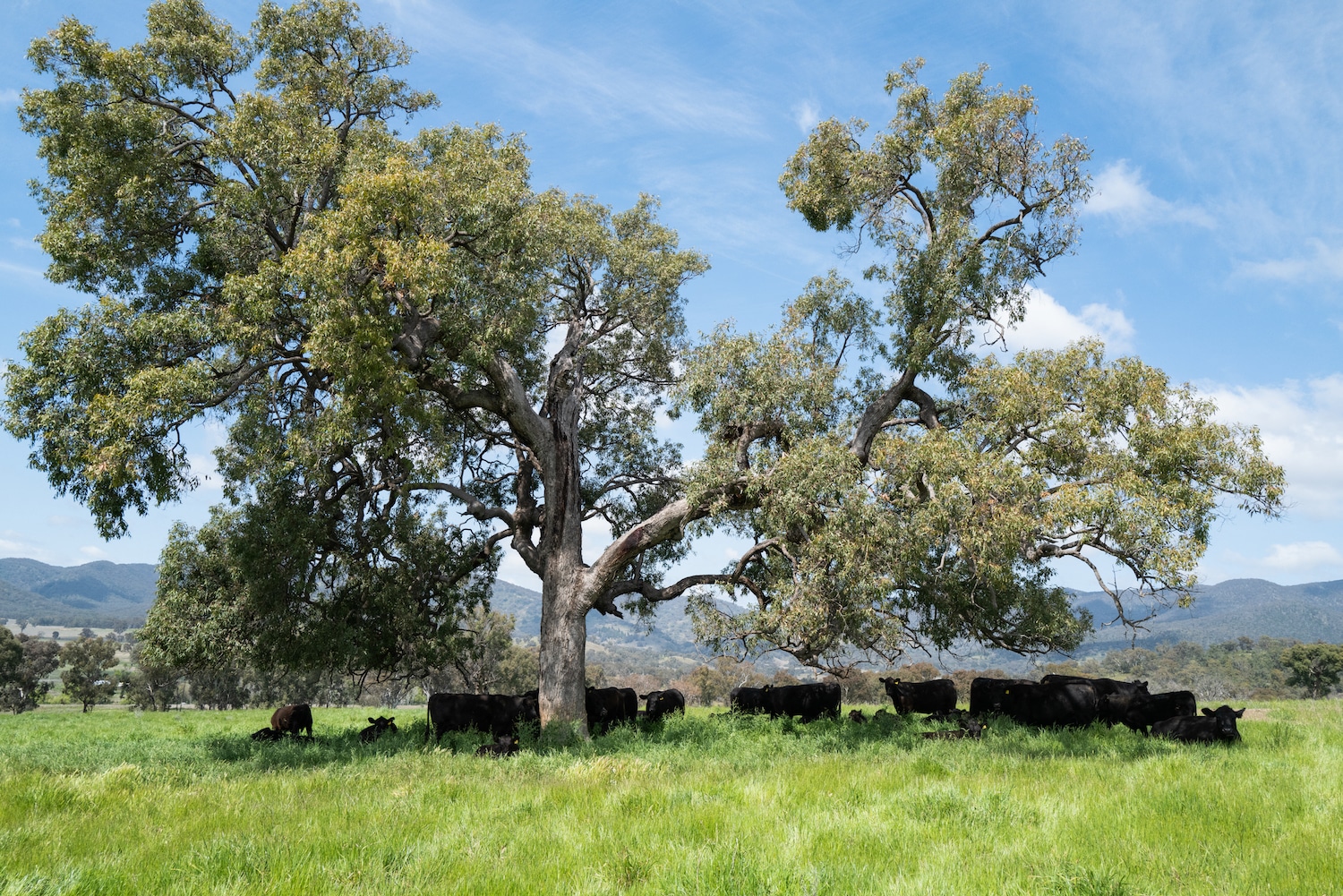
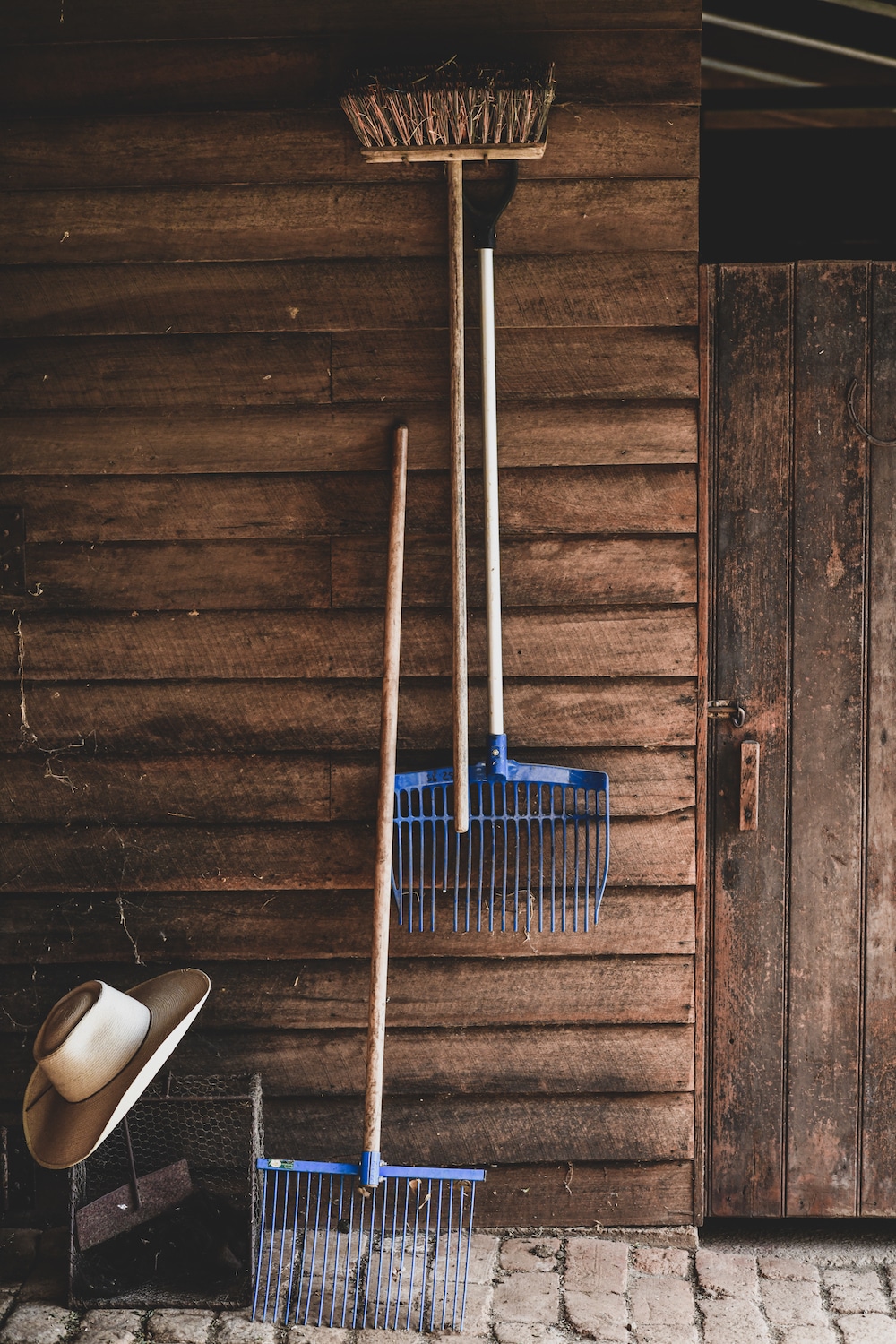
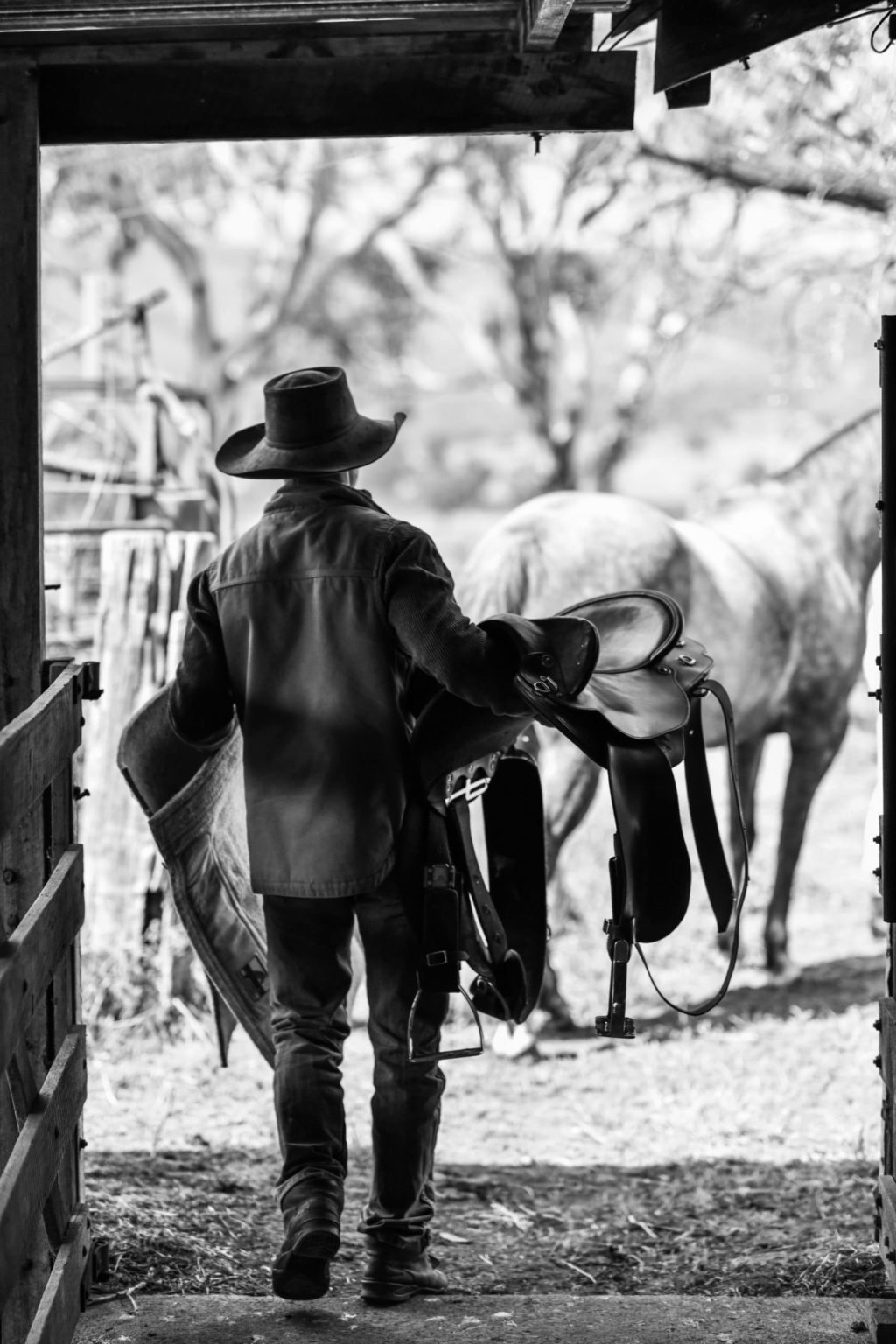
The magnificent Joker Q57, a homebred bull by Coffin Creek Joker J202, and full brother to the top priced bull in the 2020 bull sale.
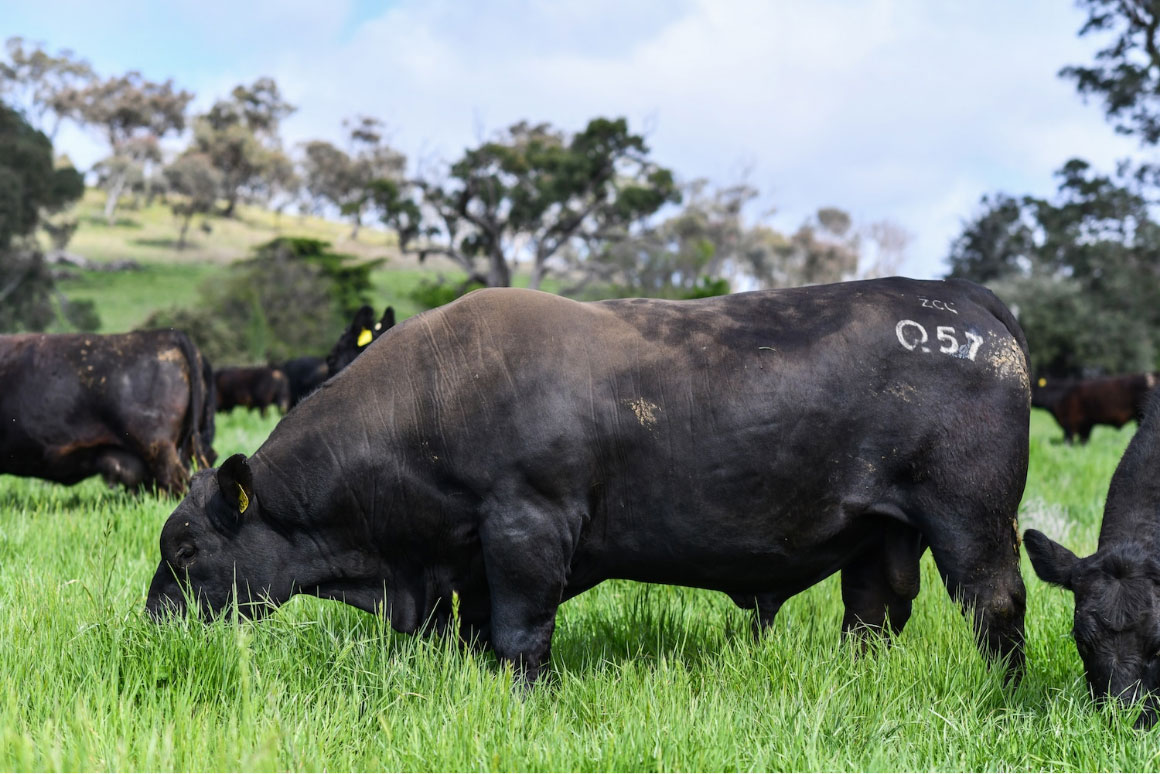
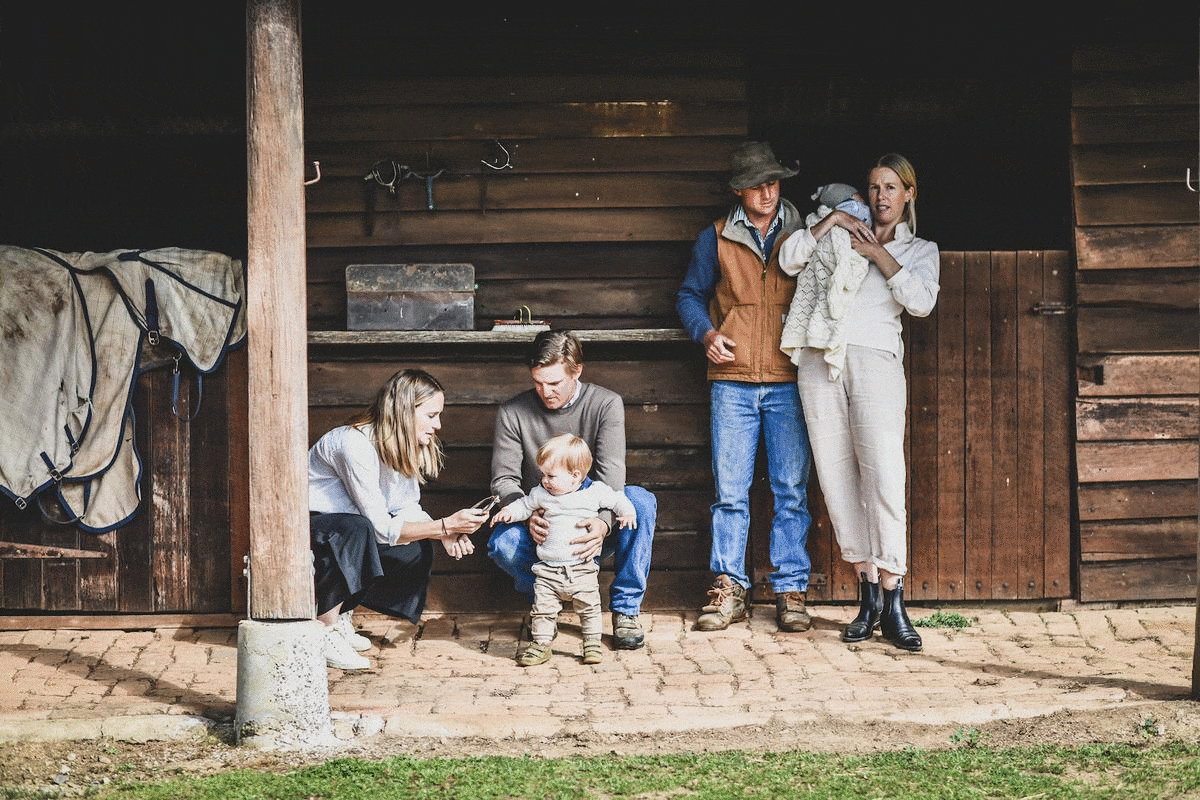
Susannah White
She is used to living in Canada’s Arctic regions where temperatures can drop to −40 °C and spent her early childhood in the Northern Territory, but for the last eight years Susannah has called the NSW Central Tablelands property Havilah North home.
Today, the 32-year-old juggles her work at agribusiness public relations firm Cox Inall with looking after a very active toddler.
Where did you grow up?
My father was an engineer with BHP, so as kids we travelled around a lot with his work. I lived on Groote Eylandt in the Gulf of Carpentaria until I was 8, before we moved to Yellowknife in the North-West Territories in arctic Canada. After two years there, we moved back to Queensland and today my parents live not far from here, near Denman in the Hunter Valley. My mother is from Bourke originally, and we still have lots of close family out west, so growing up we spent a lot of time on cousins properties at Bourke and Walgett.
Working remotely has opened up a whole new world of possibilities for many rural women. What has it meant for you?
The opportunity to work remotely has been wonderful and allowed me to both complete my postgraduate law degree and continue my career in communications, something which didn’t seem possible when I first left my corporate affairs job in Sydney and followed Jack to Mudgee.
I started with Cox Inall in 2017. Back then, convincing a new employer to take you on as a fully remote team member wasn’t really the done thing, but I was lucky Cox Inall had a well established model of employing regionally based staff, with a team based right around Australia from Emerald in Central Queensland out to the wheat-belt in WA.
Obviously, today a silver-lining of the COVID-19 pandemic has been a rise in the flexibility of workplaces and an increasing number of people working remotely, which I think is something that has and will only continue to boost the vibrancy and dynamism of regional towns.
I think it has also changed the way people work, in the sense that there is an increased willingness to use the technology available to keep the show on the road. Before the pandemic, I would regularly travel to client meetings in Melbourne, Brisbane and Sydney, often at short notice. I loved this aspect of the job, but now with a young family the prospect of jumping on a plane with less than 12 hours” notice seems nearly impossible. Fortunately, COVID has meant the expectation around “being in the room” at client meetings has changed and the need to travel has reduced greatly.
What is a typical day like for you?
They’re a bit chaotic at the moment! With a 16-month-old son and another baby coming in January, I’m either up early trying to squeeze in some exercise before Sid wakes up or getting organised for a daycare and work day. I work three days a week at the moment — dropping Sid to daycare and going into a shared workspace in Mudgee. On non-work days, Sid and I spend as much time out of the house as we can — either doing things in the garden, driving around in the buggy and going to work with Dad, or playing with the dogs and Sid’s pony, Betty.
What do you see as the benefits of regional life?
The sense of community in regional towns is something that took me a little while to recognise, but now I think is one of the best parts of living in a small town. Geography is no longer necessarily a career handbrake, and regional towns are thriving as a result. Also, space! Something which I definitely took for granted before Sid and the pandemic came along (at about the same time!)

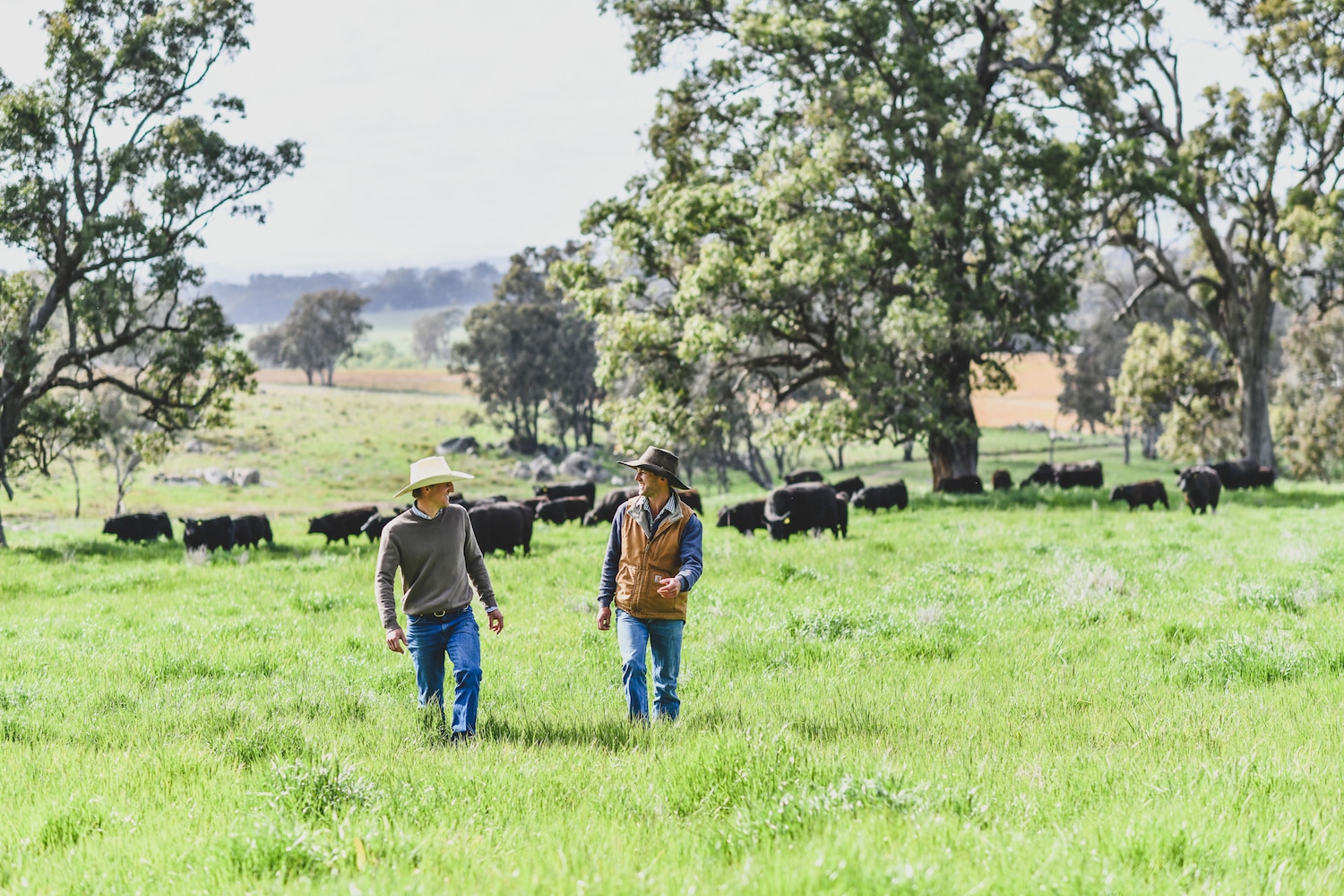
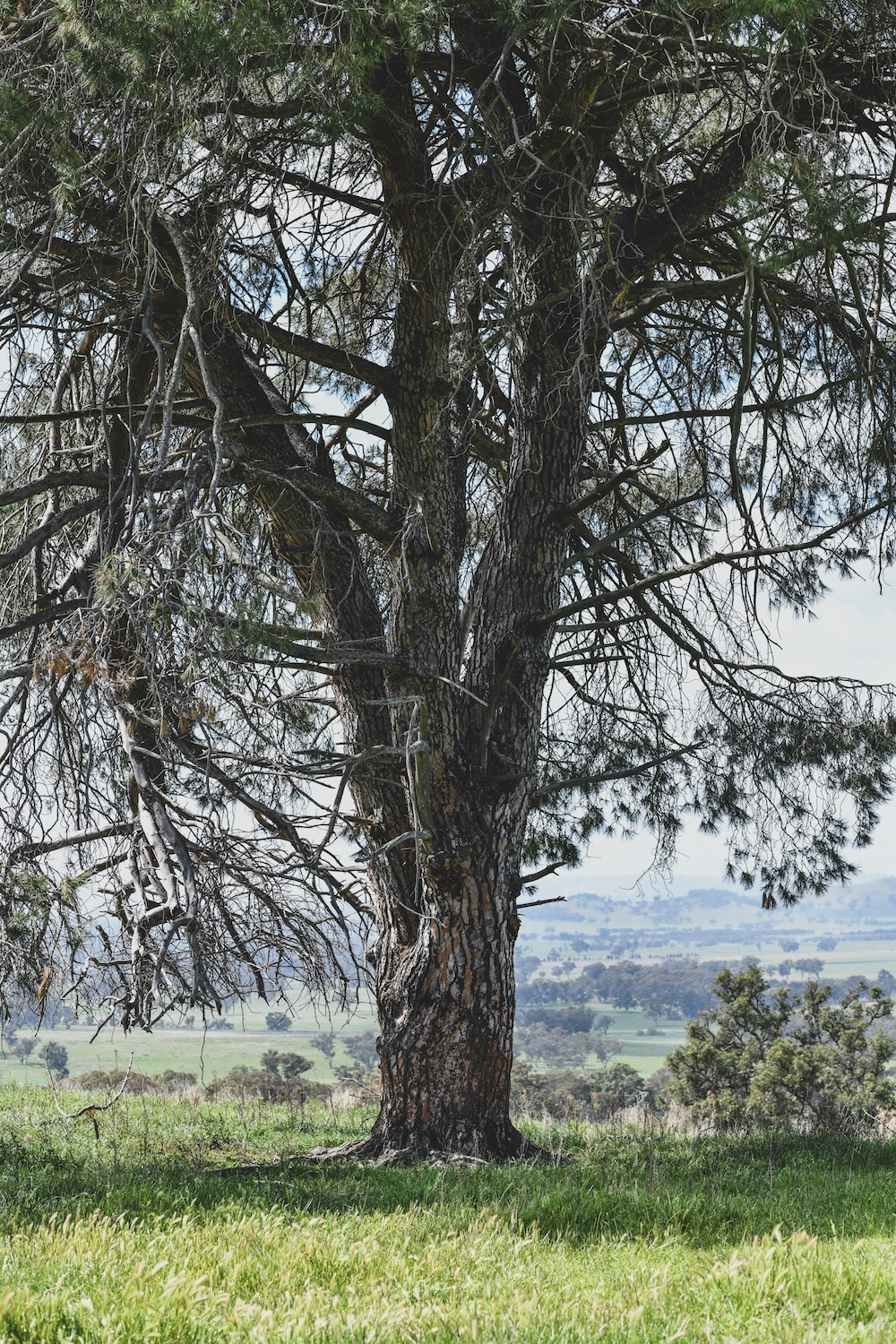
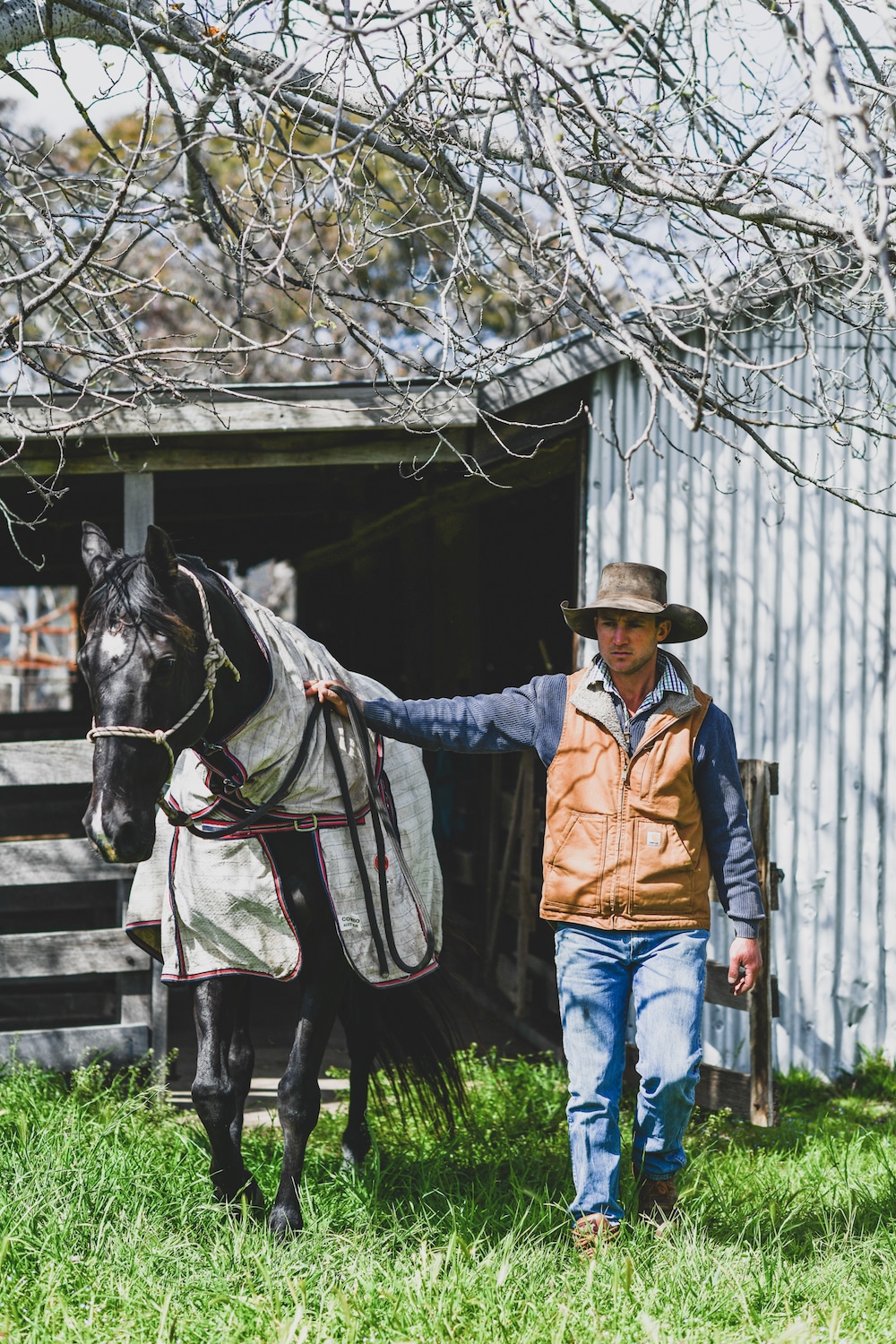
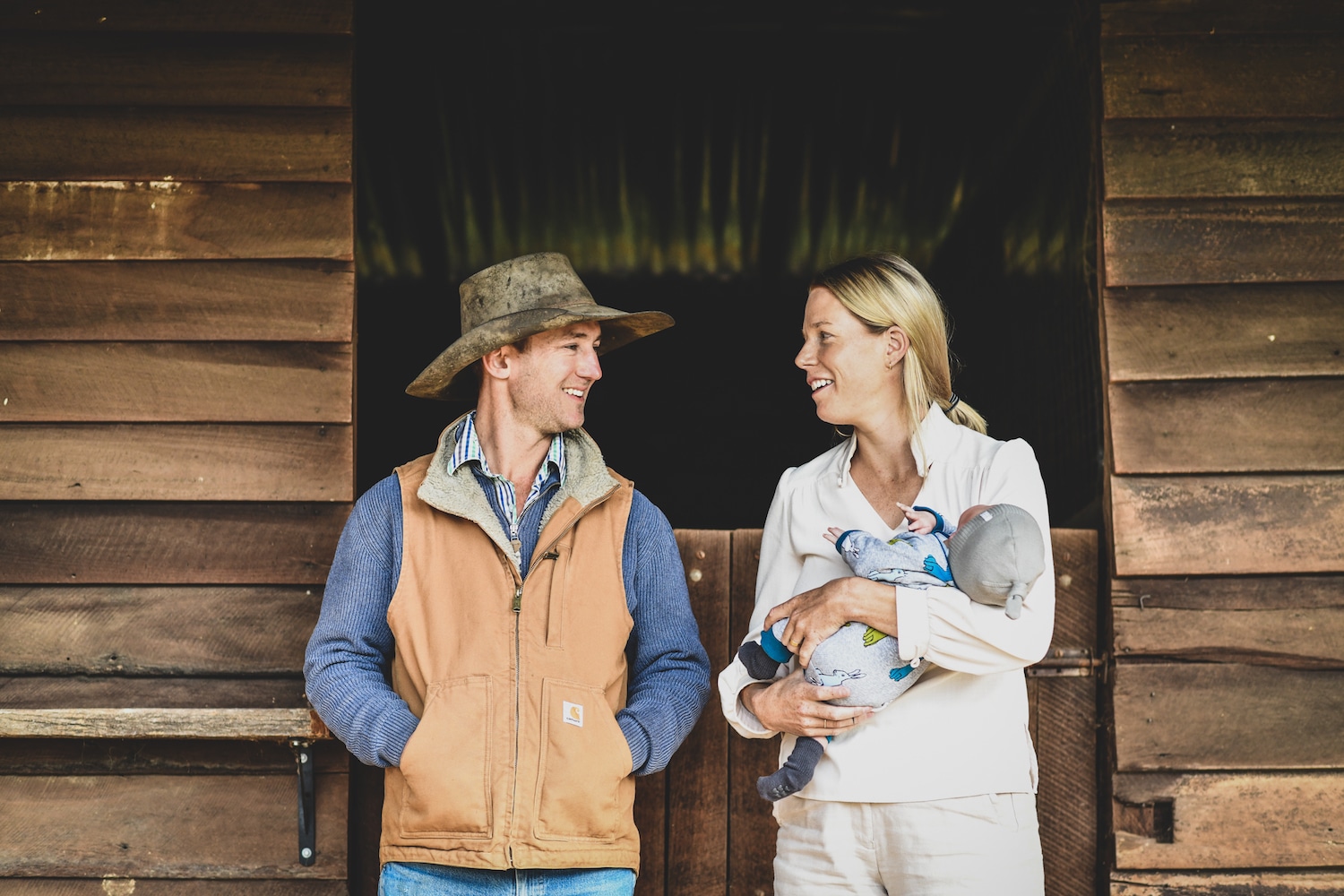
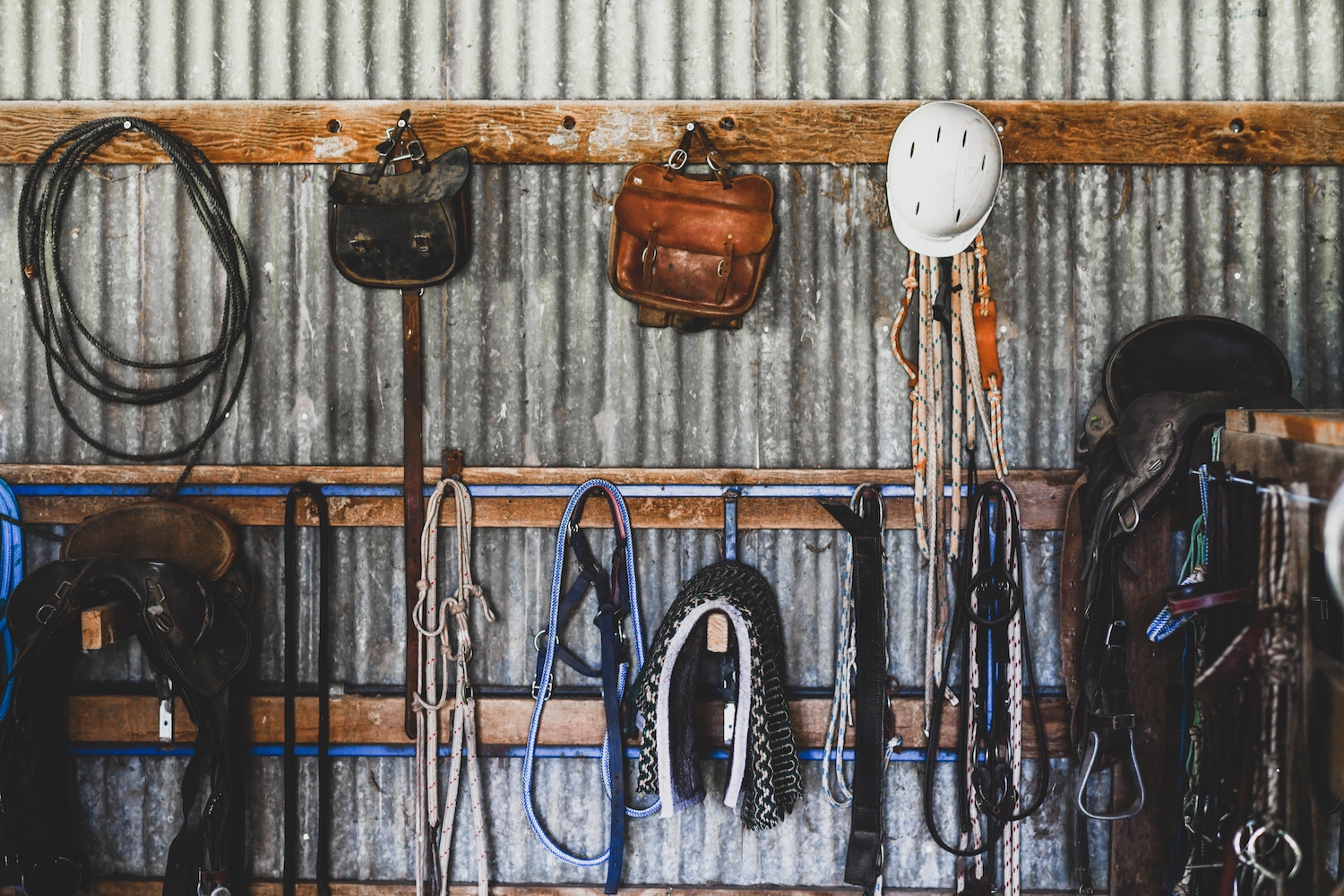
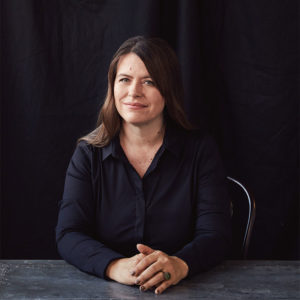
Victoria Carey
“I used to commute about a thousand kilometres a week when my son was little so it was great to hear about how Susannah is successfully working remotely,” says our editor. “It’s just makes so much sense.”
- XXXVIII LA Story by Michael Reid OAM April 2024
- XLIX Paddy’s Cottage November 2025
- XLVIII Washington DC by Michael Reid OAM November 2025
- XLVII The Outdoor Fireplace at Murrurundi by Michael Reid OAM October 2025
- XLVI Amelia Zander of Zander & Co. July 2025
- XLV Marlie Draught Horse Stud by Michael Sharp June 2025
- XLIV Trump Engulfed the Fires by Michael Reid OAM February 2025
- XLIII Newcastle by Jason Mowen October 2024
- XLII The Business of Gardening by Michael Reid OAM September 2024
- XLI Carly Le Cerf by Sarah Hetherington August 2024
- XL Pecora Dairy by Michael Sharp July 2024
- XXXIX Joseph McGlennon by Michael Reid OAM May 2024
- XXXVII Julz Beresford by Michael Sharp March 2024
- XXXVI Sydney Contemporary by Jason Mowen February 2024
- XXXV The US of A by Michael Reid OAM December 2023
- XXXIV Scone Grammar School’s principal Paul Smart by Victoria Carey November 2023
- XXXIII AgQuip by Jason Mowen October 2023
- XXXII Tinagroo Stock Horse’s Jill Macintyre by Victoria Carey September 2023
- XXXI The Old Gundy School House by Victoria Carey August 2023
- XXX Annette English by Victoria Carey July 2023
- XXIX The Ghan by Jason Mowen June 2023
- XXVIII All in the family: The Arnotts May 2023
- XXVII A Capital Plan by Jason Mowen March 2023
- XXVI Mandy Archibald March 2023
- XXV Paul West February 2023
- XXIV The Other Newcastle by Jason Mowen January 2023
- XXIII Mount Woolooma Glasshouse at Belltrees December 2022
- XXII Murrurundi to Matino: with Jason Mowen November 2022
- XXI James Stokes October 2022
- XX Adelaide Bragg September 2022
- XIX Tamara Dean August 2022
- XVIII Going home: Angus Street July 2022
- XVII Belltrees Public School June 2022
- XVI A Road Trip on the New England Highway May 2022
- XV David and Jennifer Bettington: from horses to houses April 2022
- XIV Denise Faulkner: Art of the Garden March 2022
- XIII Childhood memories: Willa Arantz February 2022
- XII Riding ahead: Giddiup January 2022
- XI Ingrid Weir’s rural life December 2021
- X Life by design: William Zuccon November 2021
- IX Life on the land: The Whites October 2021
- VIII Goonoo Goonoo Station September 2021
- VII Murrurundi: a garden playground August 2021
- VI Pat’s Kitchen July 2021
- V A creative life: Charlotte Drake-Brockman June 2021
- IV Magpie Gin May 2021
- III The Cottage, Scone April 2021
- II At home with Jason Mowen March 2021
- I A town that performs February 2021















